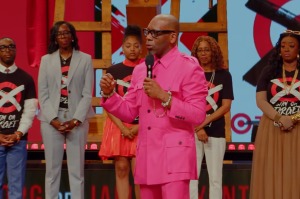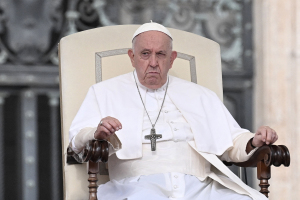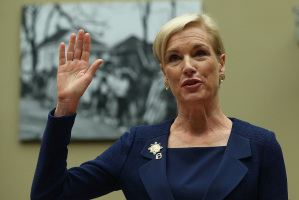From drug dealer to the pulpit: Pastor shares his journey of redemption after time in jail
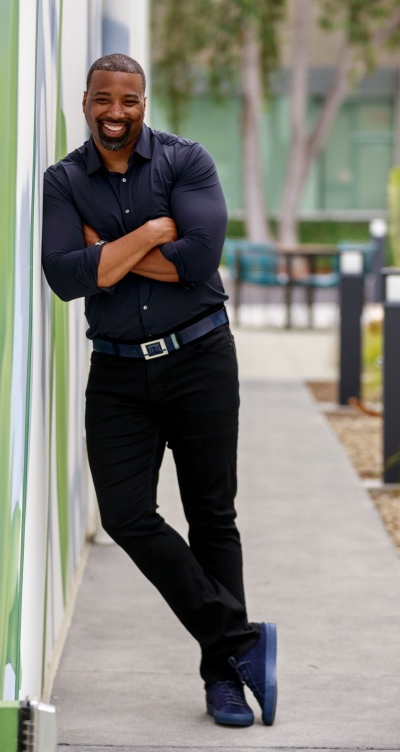
With four generations of preachers before him, Pastor Michael Phillips knew when he was a boy that “becoming a pastor was in his DNA.” But what he didn’t foresee was the long and painful road he had to journey down before entering the pulpit.
Growing up in the early 1980s in the Park Heights neighborhood of Baltimore, Maryland, an area that was heavily influenced by gang violence and crime, Phillips remembers that he didn’t have many positive role models in his community to look up to after the shocking death of his father at age 12.
In an interview with The Christian Post, Phillips, who now serves with the T.D. Jakes Foundation, said he found mentors within his immediate and extended family.
Phillips’ great grandfather, aunt, grandparents, parents and many other relatives were Christian preachers. He said his pastor father and his Christian mother were both his heroes because they taught him to pray, have faith in God and strive for his best in all his endeavors, whether socially, emotionally, academically or athletically.
A running joke among Phillips’ relatives about their family is: “You are either a preacher or a problem.” But after a series of losses as a boy and teenager, Phillips turned away from God and sold drugs to make money, which eventually landed him in jail.
Phillips, 47, detailed his troubles and how he found his way back to the Christian faith and became a pastor in his new book Wrong Lanes Have Right Turns.
As a pastor for 19 years, Phillips founded the Kingdom Life Church in West Baltimore, which grew to over 3,000 members. He now works as the chief engagement and fulfillment officer for the T.D. Jakes Foundation, a charitable foundation started by Dallas megachurch pastor T.D. Jakes.
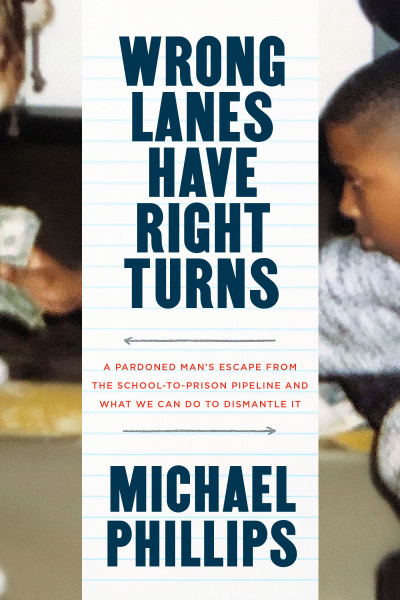
“The title ‘Wrong Lanes Have Right Turns,’ is really a wonderful way of talking about redemption, restoration and recovery,” Phillips said.
“Regardless of what lane you find yourself in, there is always a right turn. And even if it happens to be the wrong lane at that time, you can still make an accurate turn or the proper turn in your life.”
“And so for me today, it still rings true that the decisions in front of me, the things that I want to accomplish, the stuff that I want to do in my life right now to affect change will often mean having to put myself into the proximity of people who are in the wrong lane,” he continued. “And it’s my hope that I can also help them in person to make a right turn.”
Phillips has known T.D. Jakes since 2017 and has worked with the pastor’s foundation to aid people who have been incarcerated to get acclimated into society after their release from prisons.
In his book, Phillips writes about the first significant loss that he experienced. At the age of 12, Phillips’ father died suddenly and unexpectedly in the summer of 1986 after developing a blood clot that traveled from his leg to his brain, causing a stroke and fatal heart attack.
After his father’s death and funeral, Phillips admits that his dream of becoming a pastor and following in his father’s footsteps dwindled as he blamed God for his father’s passing.
“My dad was my hero. He was a model of manhood and success for me. He was the first person to show me what success looks like in my color. He was really the heartbeat of our family,” Phillips said.
“As a young male, my father was who I tethered my identity to in order to help me understand who and what I was. And when he died, I lost my sense of self and my guide to navigate uncertainty. He was everything to me and an amazing human being. When I think back about him now, I am able to see even more how incredible of a person he was.”
Phillips wrote that his father often told him: “nobody else has your fingerprint. Nobody else has your purpose,” and “[n]othing is impossible for them [who] believe.” His father also told him: “your life is more important than the load you carry.”
“When anyone suffers loss, there’s a whole list of things that takes place in their heart and mind. Our soul is always looking for someplace to anchor itself. I anchored mine in anger,” Phillips recalled.
“I was enraged, and no one could provide an answer to why he passed. The answer was simple: my father was overweight and he didn’t take care of his body and he had a stroke,” Phillips added in an interview with CP.
“But back then, I was angry and blamed God because my father had been ripped away, and part of me was ripped away. … It was sadness more than it was anger that I felt. But at 12, I didn’t know how to process those emotions.”
Years later, at age 18, while attending West Virginia University on a basketball scholarship, Phillips got into a car accident that caused him to break his fibula and tibia. He also broke several toes and injured his Achilles tendon. Following the car crash, Phillips learned from his doctors that he could never play sports again due to his injuries. He also lost his basketball scholarship.
Phillips and a friend were facing similar circumstances because they both lost their basketball scholarships due to injuries. With the unknown future ahead of them, the two agreed to sell drugs to make money.
What became something they did every so often to make a profit soon developed into a full-time dedication. They had become partners and drug dealers. After nearly two years of selling drugs, Phillips was arrested, charged and faced up to 30 years in prison.
After six months in a pre-trial detention center, Phillips stood before a judge who gave him a choice: either serve a decades-long prison sentence or attend a college program for adjudicated youth.
Phillips chose to attend the school, which was a Christian college that required attendees to attend a mandatory Chapel service called Spring Revival.
On the day that he was mandated to attend chapel in the spring of 1994, Phillips recalls that he was still very angry at God for the losses he had experienced in his life.
Phillips said he drank vodka and smoked weed because he wanted to “numb” his emotions by being high and drunk during the service. He hoped this would ease the pain associated with the Church, the Christian faith, the loss of his father and other losses.
“When I went to the service, I was drunk and high, but when the service began, I immediately became sober, and I felt God’s presence in a way that I never did before,” Phillips described.
“Feeling God’s presence was so overwhelming and frightening to me that I ran out of the service and ran to my dorm room. And I closed my door and called mom and told her what had happened. And she said: ‘Oh baby, God’s just dealing with you,’ and she hung up the phone.”
After hearing what his mother told him, Phillips said he got on his knees to pray. He remembers begging God for forgiveness and apologizing for running away. Phillips said he spent three days consecutively in his dorm room praying to God. His resident advisor came to his room on the third day to make sure he had not died in the room.
“Those days spent praying nonstop were the beginning of a healing process. It was the beginning of accepting His love and grace for my life and that He loved me no matter what and stepping into what He had purposed for me to do,” Phillips said. “I was in the room for three days, and it felt like 30 mins. It was reconstructive surgery by the Holy Spirit because I came out of that room a changed man.”
The following Sunday, Phillips gave his first altar call and shared his testimony.
“And then I was preaching the Sunday after that,” he said.
After accepting God as His Lord and Savior and later graduating from college, Phillips said he attended seminary school at New York Theological Seminary because he wanted to train to become a pastor.
“My parents had laid a foundation of the Christian faith in my life from the time I was a little boy, so when I decided to return to the faith, all the memories of my mom’s prayers and my dad’s preaching and teaching came echoing back into my mind because it never left me,” Phillips said.
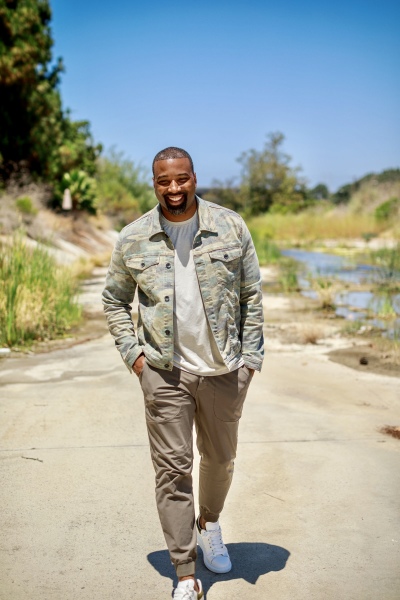
“Faith never truly left me. I ignored it. It was through the echoing of my father’s teachings and my mother’s prayers and my grandmother’s prayers that led me back to God. It was their daily habits and their love that kept me,” he added.
Phillips hopes readers of his book will come to encounter their own Christian faith and begin to understand that circumstances don’t define anyone. Even if someone is born into difficult circumstances that make it hard to survive, he said they can have hope in their own potential and in the possibilities that are endless if they believe.
“‘As a man thinks in his heart, so is he.’ We can envision a different life. If you believe this is all there will ever be, you might remain there,” Phillips said of those enduring challenging situations in life. “You can overcome the struggle of not being exposed to the vision that you have for your life. … ‘Without a vision, the people Perish.’”

















